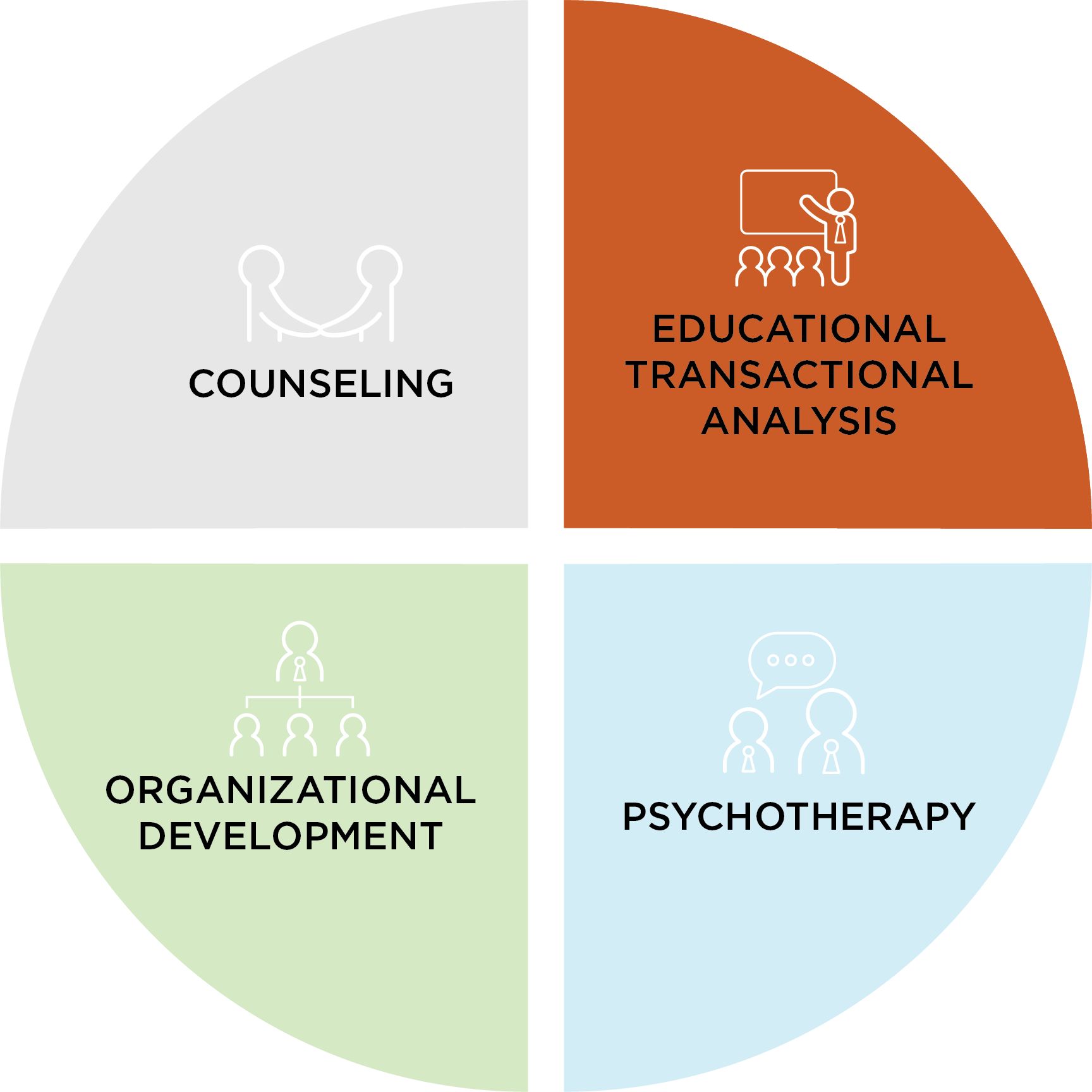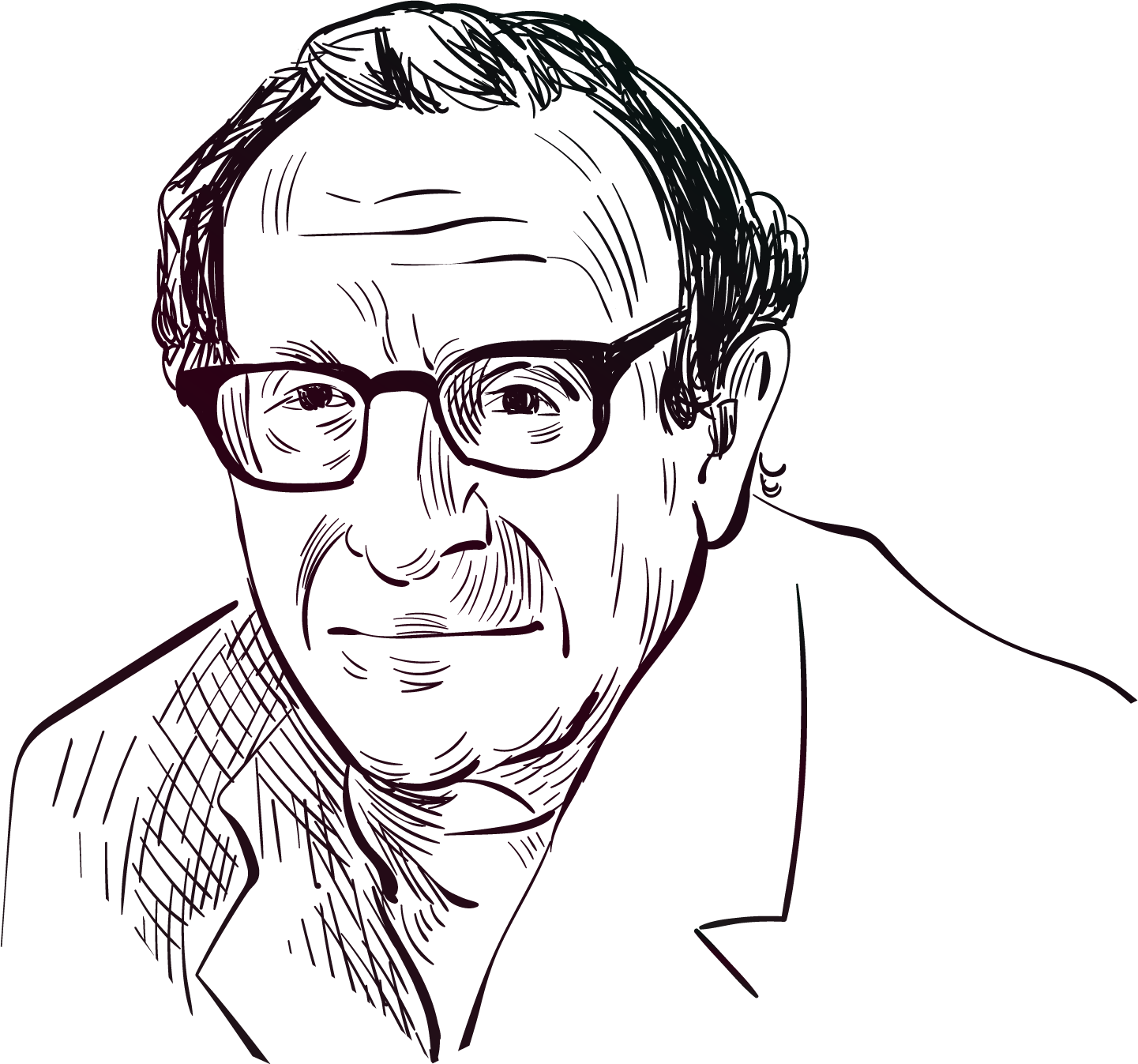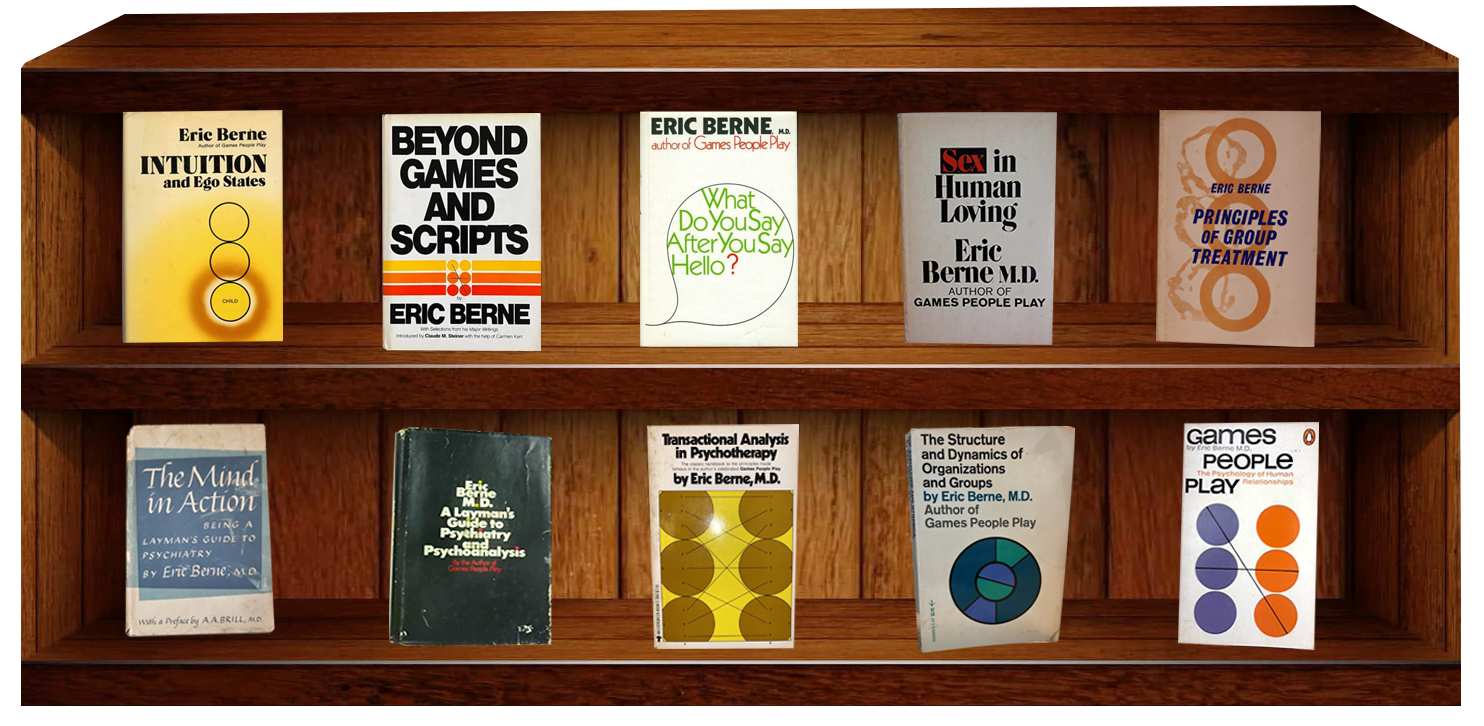What Is Transactional Analysis?
Transactional analysis is a social psychology developed by Eric Berne, MD (d.1970). Berne’s theory consists of certain key concepts that practitioners use to help clients, students, and systems analyze and change patterns of interaction that interfere with achieving life aspirations. Over the past 40 years, Berne’s theory has evolved to include applications in counseling, education, organizational development, and psychotherapy. Research studies have evaluated the effectiveness of transactional analysis in a wide variety of contexts.

The counseling specialization is chosen by professionals working as therapeutic counsellor’s and / or complimentary counsellors. Complimentary counsellors work in such diverse contexts as personal development coaching, social work, health care & promotion, legal services, pastoral work, prevention, mediation, facilitation and humanitarian activities, to name a few.
Educational transactional analysis is used by practitioners working in training centers, preschools, elementary and high schools, universities, and institutions that prepare teachers and trainers as well as in support of learners of all ages to thrive within their families, organizations, and communities.
Psychotherapists utilize transactional analysis to facilitate their clients’ capacities for self-actualization and healing by learning to recognize and change old, self-limiting patterns.
Organizational transactional analysts work in, or for, organizations using transactional analysis concepts and techniques to evaluate an organization’s developmental processes and challenges as well as its dysfunctional behaviors. They are involved in developing strategies to enable effective change.

Key Concepts in Transactional Analysis
I'm OK - You're OK
“I’m OK – You’re OK” is probably the best-known expression of the purpose of transactional analysis: to establish and reinforce the position that recognizes the value and worth of every person. Transactional analysts regard people as basically “OK” and thus capable of change, growth, and healthy interactions.
Strokes
Berne observed that people need strokes, the units of interpersonal recognition, to survive and thrive. Understanding how people give and receive positive and negative strokes and changing unhealthy patterns of stroking are powerful aspects of work in transactional analysis.
Ego States
Eric Berne made complex interpersonal transactions understandable when he recognized that the human personality is made up of three “ego states”. Each ego state is an entire system of thoughts, feelings, and behaviors from which we interact with one another. The Parent, Adult and Child ego states and the interaction between them form the foundation of transactional analysis theory.
Transactions
Transactions refer to the communication exchanges between people. Transactional analysts are trained to recognize which ego states people are transacting from and to follow the transactional sequences so they can intervene and improve the quality and effectiveness of communication.
Games People Play
Berne defined certain socially dysfunctional behavioral patterns as “games.” These repetitive, devious transactions are principally intended to obtain strokes but instead they reinforce negative feelings and self-concepts, and mask the direct expression of thoughts and emotions. Berne tagged these games with such instantly recognizable names as “Why Don’t You, Yes But,” “Now I’ve Got You, You SOB,” and “I’m Only Trying to Help You.”
Life Script
Eric Berne proposed that dysfunctional behavior is the result of self-limiting decisions made in childhood in the interest of survival. Such decisions culminate in what Berne called the “life script,” the pre-conscious life plan that governs the way life is lived out. Changing the life script is the aim of transactional analysis psychotherapy. Replacing violent organizational or societal scripting with cooperative non-violent behavior is the aim of other applications of transactional analysis.
Contracts
Transactional analysis practice is based upon mutual contracting for change. Transactional analysts view people as capable of deciding what they want for their lives. Accordingly transactional analysis does its work on a contractual basis between the client and the therapist, educator, or consultant.
These core concepts are also available to download in a variety of languages below. For more comprehensive descriptions of transactional analysis theory and practice, you can also download: “A Summary of Transactional Analysis Concepts I Use” by Fanita English and “Transactional Analysis; An Elegant Theory and Practice” by Claude Steiner.
Eric Berne’s Early Years
1935-36
Berne received an M.D. and C.M. (Master of Surgery) from McGill University Medical School. He began his psychiatric residency at the Psychiatric Clinic of Yale University School of Medicine.
1940
Berne established a private practice in Norwalk, Connecticut.
1943-46
Because of the demand for army psychiatrists during World War II, Dr. Berne served in the AUS Medical Corps, rising from first lieutenant to major.
1946-47
He resumed his psychoanalytic training at the San Francisco Psychoanalytic Institute and became the analysand of Eric Erikson, with whom he worked for two years.
1950-51
He took an appointment as Assistant Psychiatrist at Mt. Zion Hospital, San Francisco, and began serving as a Consultant to the Surgeon General of the US Army. He added the job of Adjunct and Attending Psychiatrist at the Veterans Administration and Mental Hygiene Clinic, San Francisco, in addition to his private practices in both Carmel and San Francisco.
Eric Berne’s Later Years
1957
He wrote two seminal papers, both published in 1957, “Intuition V: The Ego Image” where he showed how he arrived at the concept of ego states and “Ego States in Psychotherapy” where he developed the tripartite scheme used today (Parent, Adult, and Child) and termed it “a new psychotherapeutic approach.” He wrote a third article, “Transactional Analysis: A New and Effective Method of Group Therapy,” which was presented at the 1957 Western Regional Meeting of the American Group Psychotherapy Association of Los Angeles.
1958
With the publication of this third paper in the 1958 issue of the American Journal of Psychotherapy, Berne’s new method of diagnosis and treatment, transactional analysis, became a permanent part of the psychotherapeutic literature and added the important new features of transactional analysis proper (i.e. the analysis of transactions), games, and scripts.
January 1962
Publication of the Transactional Analysis Bulletin first appeared with Berne as editor.
1964
Berne and his San Francisco and Monterey seminar colleagues decided to create an association, naming it the International Transactional Analysis Association in recognition of the growing number of transactional analysis professionals outside the USA.
1964-70
Berne continued to work long hours at his increasingly complex writing commitments. On May 10th, 1970, his 60th birthday, Berne sent his manuscript What do You Say After You Say Hello to Grove Press. Berne died on July 15, 1970.
Major Publications by Eric Berne
Click here to see the complete bibliography of Eric Berne’s publications.
Terrence Berne, Erics son is responsible for the Eric Berne literary collection and archives. Visit www.ericberne.com and www.ericbernearchives.org for more information.

Eric Berne Biographies
The biography Eric Berne, Master Gamesman by Elizabeth Watkins Jorgensen and Henry Irvin Jorgensen (Grove Press, 1984) is available for purchase online, as is Ian Stewart’s Eric Berne (from the “Key Figures in Counselling and Psychotherapy Series”). Berne’s own memoir, A Montreal Childhood, was edited by the youngest of his seven children, Terence (Terry) Berne.

Eric Berne Biographies
The biography Eric Berne, Master Gamesman by Elizabeth Watkins Jorgensen and Henry Irvin Jorgensen (Grove Press, 1984) is available for purchase online, as is Ian Stewart’s Eric Berne (from the “Key Figures in Counselling and Psychotherapy Series”). Berne’s own memoir, A Montreal Childhood, was edited by the youngest of his seven children, Terence (Terry) Berne.

